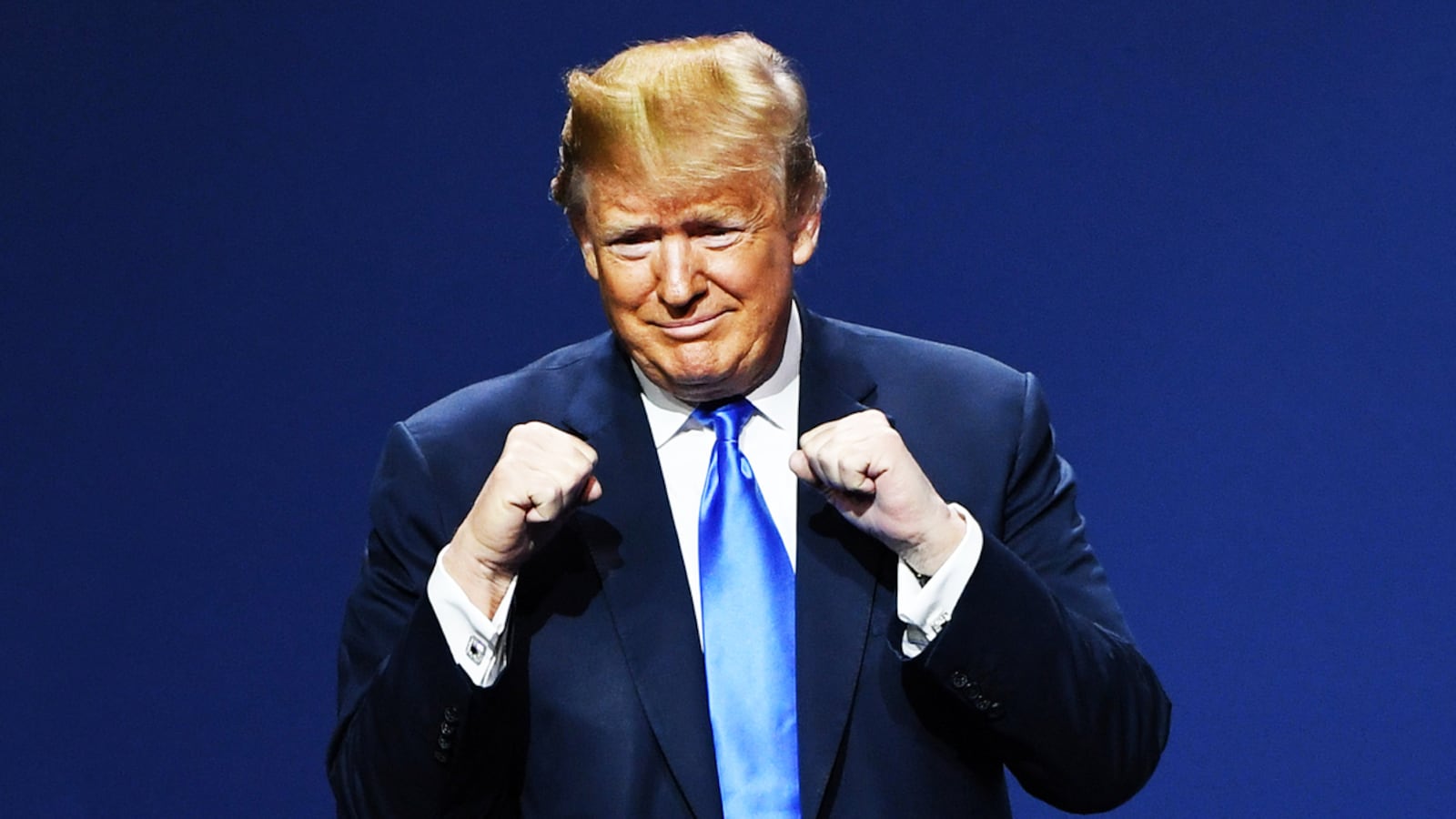So we learn from The New York Times that Donald Trump chose the most extreme option the military presented to him and decided to take out Qassem Soleimani. “Top Pentagon officials,” the paper reports, “were stunned.”
I’d love to know who these people were and why they were stunned. People in public positions, I’ve learned over the years, have an amazing capacity for self-delusion and false reassurance, from the German ministers who thought bringing Hitler into the government would make him behave more responsibly, to these generals, to a thousand other clowns in between.
And now Donald Trump and the chairman of the Joint Chiefs of Staff want us to believe that the threat to the United States was imminent? Without giving us any details? I don’t know about Gen. Mark Milley’s relationship to the truth up to now, but we sure know about Trump’s, and it tells us—this is an unsurprising but nevertheless sad thing to say—that we’d be idiots not to assume that the president of the United States is lying.
I was thinking over the weekend of the most dramatic way to express where we are, and it is this: This is a situation without exact precedent in recent American history because it has been decades since we launched an attack like this against an adversary who has the clear capability to retaliate.
And Iran definitely has that. Its military is more than 500,000 strong, which makes it the world’s eighth largest. It has a relative lack of air power compared to competitors Israel and Saudi Arabia, but it has probably the largest missile forces in the Middle East. It has armed drones and extensive cyber capabilities. It has its well-known militias around the Middle East and can use those militias to launch attacks on soft targets of U.S. personnel or allies like Israel in the region. It has the ability to choke off the Strait of Hormuz (i.e. the flow of much of the world’s oil supply). The Daily Beast’s Adam Rawnsley detailed the myriad ways Iran could respond, ways that we’d feel.
The United States has, obviously, engaged in a lot of military adventurism over the years. But there is also some military adventurism we have not engaged in: We tend to pick on people who aren’t own our size. This held pretty true during the Cold War. We avoided direct confrontation with the Soviet Union, although we did of course arm adversaries in Third World hot spots in proxy wars that cost many lives. And we never attacked China, though we did fight them directly once, in Korea.
The history of U.S. adventurism is hardly a proud one in many respects, and today we rightly criticize the installing of right-wing dictators and so on, but at least there was one thing we didn’t do. We haven’t in recent decades struck dramatically at adversaries who had the capability of striking dramatically back. Now you might say, well of course not, that would have been suicidal. But if you know this history at all, you know that there were plenty of right-wing hawks who wanted us to invade Russia in 1945 or “Red” China in 1951.
But we didn’t. You can go through the whole history. Ronald Reagan invaded Grenada; but when 241 Marines were killed in Beirut in 1983, he talked a lot but did nothing to risk ratcheting up the chances of actual war. The real adversary then? Interestingly and ironically, Iran.
In the post-Cold War period, the habit of picking on the skinny kid became perhaps more pronounced. George H.W. Bush’s little war was against Panama, and his big war was against a foe, Iraq, that really had no capacity to bring major pain to the United States. Bill Clinton had a little intervention in Haiti and then went after Slobodan Milosevic—a monster, but no one thought he could do anything to the United States. George Bush Jr., like his father, invaded Iraq, a country that could not retaliate directly against us (that war became an epic horror show, of course, but for other reasons).
No—whatever mistakes we’ve made, whatever wrongs we’ve committed, we’ve always at least been smart enough not to provoke directly an actor who had the power to hurt us.
Until last week.
This was a first. The one form of restraint we’ve consistently shown is now tossed out the window. It’s a move that establishes a precedent in the world that invites more lawlessness and revenge.
So Trump has, however foolishly, given us a moment of real historical importance here. For decades, right-wing hawks have been saying strike first, no matter how large the adversary—it will show strength, and the adversary will wilt. Everyone else has been saying for decades that that’s crazy—striking will only encourage retaliation and lead to a spiral of violence. But because we never struck at an adversary with much in the way of reciprocal power, the debate has always remained hypothetical.
Now, it’s real. If Iran does nothing, and Trump is proven right, well, good for him, and for the world, which is a better place without Soleimani in it. But I’m not seeing that anyone expects that. It seems far more likely that Trump will be wrong. Let’s just hope he’s not disastrously wrong.





